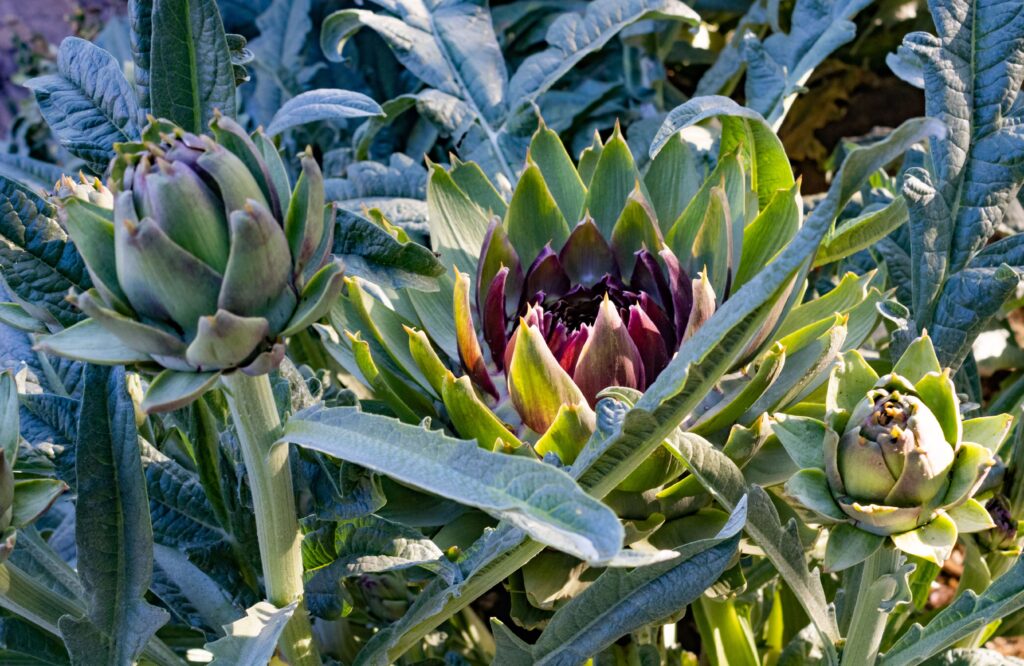Summary of Artichoke inoculation with Rhizoglomus irregulare, Funneliformis mosseae, and Trichoderma koningii changes metabolic profile of heads
Microbial Biostimulants Shift Artichoke Metabolism in Saline Conditions
In many irrigated areas of the southern Mediterranean, vegetable growers face the increasing challenge of saline water irrigation due to limited fresh water availability. Consequently, crop productivity is often negatively affected. Interestingly, microbial biostimulants shift artichoke metabolism, offering a promising solution for enhancing plant resilience and nutritional quality under such stressful conditions.
Soil Salinity Challenges in Artichoke Cultivation
In the region of La Vega Baja del Segura, Spain, soil salinity has become a growing concern for farmers producing sensitive cultivars such as ‘Blanca de Tudela’. Moreover, the use of low-quality irrigation water exacerbates salinity stress. Therefore, growers must explore innovative strategies to maintain both yield and quality in artichoke production.
Effects of Microbial Biostimulants on Artichoke
The present study specifically investigated the effects of arbuscular mycorrhizal fungi (AMF: Rhizoglomus irregulare BEG72 and Funneliformis mosseae BEG234) and Trichoderma koningii TK7 on artichoke plants. Seven-week-old plants grown in saline soil at Orihuela were inoculated through a drip irrigation system with microbial suspensions. As a result, microbial biostimulants shift artichoke metabolism, leading to measurable differences between treated and untreated plants.
Metabolic Changes Induced by Microbial Inoculation
Using OPLS-DA analysis, researchers detected 105 metabolites that were significantly altered by the microbial treatment. Specifically, inoculation caused hormonal adjustments, including downregulation of cytokinin metabolism and up-accumulation of five metabolites within the jasmonic acid pathway. In addition, a decrease in ribulose 5-phosphate was observed. Notably, artichoke heads from inoculated plants exhibited higher levels of pantothenate (vitamin B5), aminobenzoate (vitamin B9), and pyridoxine (vitamin B6). These changes suggest enhanced plant stress tolerance and nutritional benefits.
Implications for Artichoke Growers
Taken together, these results indicate that microbial biostimulants shift artichoke metabolic pathways in beneficial ways. Consequently, incorporating such biostimulants could be a practical strategy for growers facing saline irrigation challenges. Furthermore, this approach may improve crop quality and contribute to sustainable agriculture in regions with limited fresh water. Therefore, microbial biostimulants represent a promising tool for modern horticulture.
Publication: Acta Horticulturae









